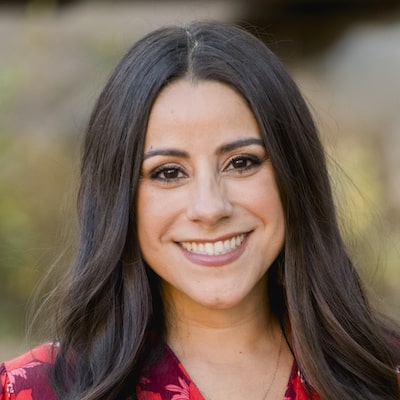Direct messaging: Marlena Medford
Civic tech evangelizer. Storyteller. Diversity seeker.
July 27, 2022
You just started a new gig. How’s it going?
Yes, I just joined Code for America as communications director. I’m still basking in the energy of our recent Summit, which was a much-needed reunion for a lot of people in the civic tech community.
And I’m excited about what’s ahead for Code for America. We’re doing everything from helping local government create education and job opportunities for young Black adults, to helping the federal government simplify tax filing.
What’s the value of communications within civic tech?
Civic tech is nebulous. Depending on who you ask, it could be anything from enterprise software to service design to bespoke apps. Communications can clearly articulate what you’re doing in civic tech and, more importantly, why.
No matter the context, all civic technologists ultimately want to have a positive impact on the public. Our work isn’t just about modernizing systems. It’s about getting critical services and resources to people who need them. It’s about creating ways to involve and empower people who have been left out.
That’s the story that communications can tell.
And that’s what ultimately gets people fired-up about the mission of civic tech.
What’s top of mind for you right now?
I’m fortunate to be on a team that’s incredibly diverse — probably the most diverse of my career, in fact. I’m deeply grateful for this.
But it’s also made me wonder how to drive more representation across civic tech and government at-large. The public needs to see themselves in public service.
That’s critical for building trust.
Beyond that, solving hard problems demands diversity. Lived experiences are a tremendous asset. We need that depth of empathy and perspective if we’re really going to serve all the people.
What do you see are the fundamental reasons civic tech is lacking representation?
I think civic tech’s lack of diversity is due to low visibility and inadequate access. Civic tech careers aren’t marketed to marginalized communities. And they certainly don’t feel easy to attain.
Beyond that, it can be hard for BIPOC talent to navigate a career in civic tech.
Before joining Code for America, I sat through many meetings where I was the only person of color. I’ve also been the only person of color on many teams. That’s isolating, of course.
My experience isn’t unique in civic tech.
How can we change that?
If we’re going to attract more diversity into civic tech, I believe we have to meet those candidates where they are. I think that starts with outreach at junior and high school levels, when kids are still wrapping their heads around what’s possible for them.
I should also note that there’s a ton of progress being made for early-career civic technologists. Groups like Coding It Forward and U.S. Digital Corp are doing great work to build the talent pipeline — and although it’s not explicitly tailored to BIPOC talent, there is a strong DEI component.
How can the civic tech community be more proactive on inclusivity?
For starters, I’d encourage everyone in civic tech to take an honest look at who they are elevating as thought leaders in our industry.
Seemingly simple actions — like who we amplify on social media, or who we invite to speak on a panel — matter and they set a tone for our industry.
We should all ask ourselves if and how’re making space for BIPOC talent in civic tech.
What’s your civic tech pitch to government leaders?
Government must be able to deliver the basics in our modern world. Beyond working websites, there should be easy — even intuitive — ways to connect people to their government. And those experiences should be rooted in empathy.
That starts with understanding people’s needs. The systems and technology flow from that.
This isn’t a moonshot. We’re already seeing this pivot from the status quo. Granted, it’s not at scale. Not yet. But I believe we’ll get there.
What advice do you have for those exploring careers in civic tech?
There’s nobility in civic tech. It’s incredibly meaningful to help improve public systems. But it can also be draining. You often feel like you’re not making a dent, like change isn’t happening fast enough.
So, my advice would be to keep heart. Remember, we won’t change institutions overnight. But that doesn’t make the mission unworthy. Find the thing that fired you up to do this work, and hold on to that.
Also, find the people who embody that spark. They’ll surely be a balm when motivation runs low.
